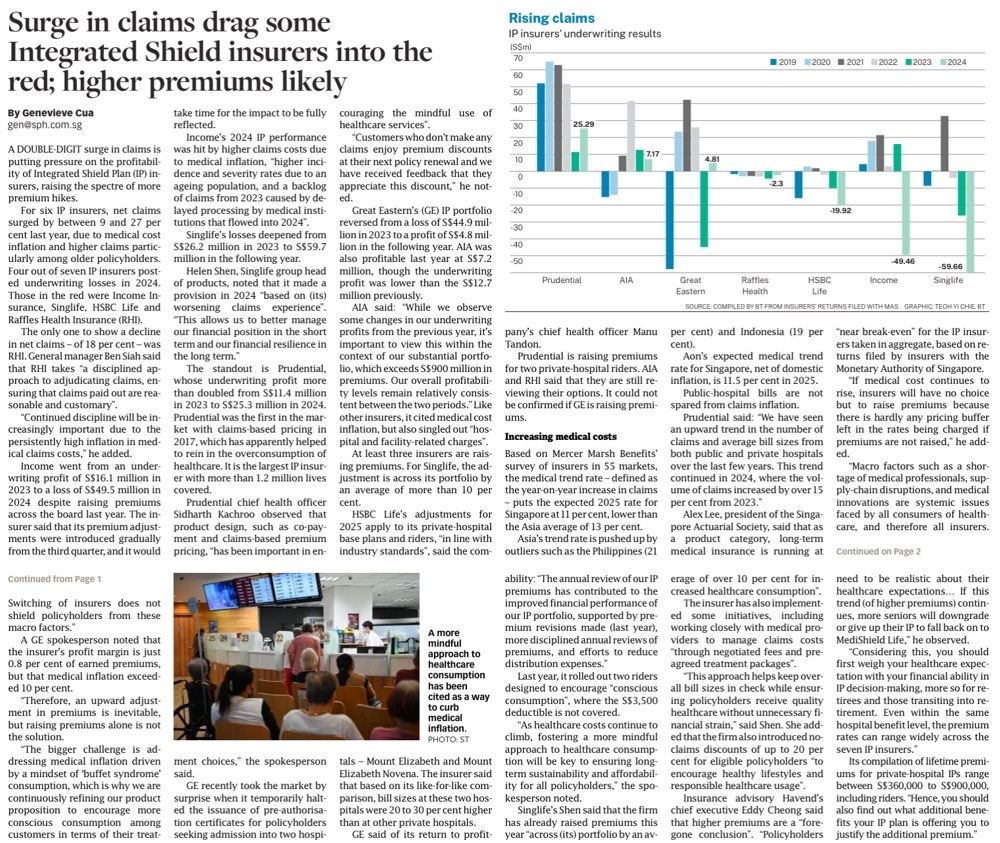By Chuin Ting Weber, CFP, CFA, CAIA
CEO & Chief Investment Officer, MoneyOwl
There’s no doubt that private hospital bills in Singapore have become really high, so I can understand why insurers are baulking.
It’s also natural for insurance companies, like all commercial companies, to want each individual line of business to be profitable.
So yes, premiums will go up.
At the same time, insurers would surely know from their sales teams that hospitalisation plans are *the* door opener for advisers and insurance agents to make sales of other (profitable) life insurance products.
This is because a hospital plan is foundational, and also the one type of expense of which people are most afraid and for which they would seek out advice. For all other life insurance, those are “sold and not bought”.
Plus, because the Integrated Shield Plan is part of a national scheme, people have the reasonable expectation that an insurer would try their utmost not to change its terms too drastically, and that the ecosystem as a whole would honour the spirit of the compact, so as to make it work for most of those who have been paying premiums at this level.
After all, this marketplace is not the same as those for other products.
Policyholders are very much locked in because they face exclusions if they change insurers. Similarly, it is not so easy for a patient to change doctors if there’s an ongoing condition. To downgrade is a one-way street – no turning back.
If there’s a buffet syndrome, is it because it’s the patient abusing the system? No one chooses to fall sick, and we cannot expect a patient to reject treatment and tests recommended by a medical professional. Efficiency and value for money for the larger community are rational policy matters, but for the individual, the rational choice is the best I can access for my or my loved one’s survival or well-being.
As a commentator said, the Singapore consumer is the ping pong ball here between the insurer and the hospital/ doctors.
Surely, there’s enough brains in the ecosystem to work this out, to make it work for both the collective and most individuals.
The arbiter should not be only the profit motive of either insurer or healthcare provider.
Our private hospital have excellent Singapore doctors who had been trained through our system. Even if it is private, we should not price out all but the top 1% of our society from our hospitals.





